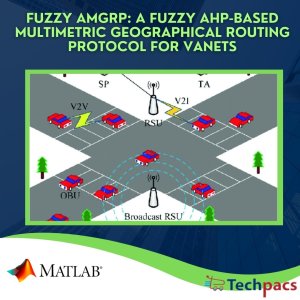Channel Impairment Mitigation Techniques for Enhanced OFDM Communication
Problem Definition
Various techniques have been proposed in the literature for reducing the peak-to-average power ratio (PAPR) in OFDM systems, such as clipping, filtering, companding, and phase optimization. While -u law companding has been shown to be more effective than clipping in reducing PAPR, it results in compressed signals with higher average power and non-uniform distributions. A novel Nonlinear Companding Transform (NCT) technique, known as "exponential Companding," has been introduced to address these limitations. This approach aims to transform the original Gaussian-distributed OFDM signals into uniform-distributed signals without changing the average power level. Unlike -law companding which focuses on expanding small signals, the proposed NCT approach adjusts both small and large signals evenly, leading to improved performance in terms of PAPR reduction, bit error rate (BER), and phase error for OFDM systems.
Objective
The objective of this research project is to address the problem of high Peak-to-Average Power Ratio (PAPR) in OFDM signals by implementing and evaluating the novel Nonlinear Companding Transform (NCT) scheme, termed as "exponential Companding". The goal is to achieve a uniform distribution of OFDM signals without changing the average power level by adjusting both small and large signals evenly. The study aims to outperform traditional companding methods in terms of PAPR reduction, Bit Error Rate (BER), and phase error to enhance the overall system performance in OFDM communication under different channel configurations. By incorporating various advanced techniques, such as Estimated Power Delay Profile (PDP), Constant PDP, Exponential PDP, Weiner technique, Ext-KL technique, and 1D LMMSE technique, the research seeks to optimize the performance of wireless communication systems by reducing BER and improving reliability and efficiency in various channel conditions. The focus is on exploring innovative solutions to enhance OFDM communication performance and contribute valuable insights to the field of wireless communication technology.
Proposed Work
In this research project, the focus is on addressing the problem of high Peak-to-Average Power Ratio (PAPR) in OFDM signals by exploring novel companding techniques. The literature review reveals the limitations of existing approaches and the potential benefits of a new Nonlinear Companding Transform (NCT) scheme termed as "exponential Companding". The proposed work aims to implement and evaluate this new companding technique to achieve uniform distribution of OFDM signals without altering the average power level. By adjusting both small and large signals evenly, the NCT approach is expected to outperform traditional companding methods in terms of PAPR reduction, Bit Error Rate (BER), and phase error.
Furthermore, the objective of this project is to enhance the overall system performance by reducing the BER in OFDM communication within different channel configurations.
To achieve this goal, a comprehensive system is designed incorporating various advanced techniques such as Estimated Power Delay Profile (PDP), Constant PDP, Exponential PDP, Weiner technique, Ext-KL technique, and 1D LMMSE technique. Each technique is carefully selected to address specific challenges related to channel impairments and interference, aiming to optimize the performance of the communication system. Through rigorous experimentation and analysis, the study will evaluate the effectiveness of each technique in reducing BER and enhancing the reliability and efficiency of wireless communication systems in various channel conditions. The research approach is driven by the need to explore innovative solutions to improve OFDM communication performance and contribute valuable insights to the field of wireless communication technology.
Application Area for Industry
This project's proposed solutions can be applied in various industrial sectors such as telecommunications, broadcasting, and wireless networking. The challenges that these industries face, such as high peak-to-average power ratio (PAPR), bit error rate (BER), and signal distortion, can be effectively addressed through the implementation of the advanced techniques outlined in the project. By incorporating Estimated Power Delay Profile (PDP), Constant PDP, Exponential PDP, Weiner technique, Ext-KL technique, and 1D LMMSE technique, industries can achieve significant benefits such as improved signal quality, reduced interference, and enhanced overall system performance. These solutions not only mitigate issues related to channel impairments and noise but also contribute to increasing the reliability and efficiency of wireless communication systems across different channel configurations.
Application Area for Academics
The proposed project has significant potential to enrich academic research, education, and training in the field of wireless communication systems. By focusing on PAPR reduction techniques in OFDM systems and analyzing various channel configurations, the project offers insights into enhancing system performance and reducing BER. Researchers, MTech students, and PHD scholars can benefit from the code and literature of this project to explore innovative research methods, simulations, and data analysis within educational settings.
The application covers a range of advanced techniques such as Estimated Power Delay Profile, Constant PDP, Exponential PDP, Weiner technique, Ext-KL technique, and 1D LMMSE technique to address specific challenges related to channel impairments and interference. These techniques offer valuable tools for optimizing OFDM communication in different channel conditions, thereby contributing to the advancement of wireless communication systems.
The project's relevance lies in its ability to provide a comprehensive analysis of PAPR reduction approaches and channel configurations, offering a platform for researchers to test and compare different techniques for improving system performance. By studying the impact of each technique on BER reduction, the project opens up opportunities for exploring new research methods and developing innovative solutions in the field of wireless communication.
In terms of future scope, researchers can further extend the project by exploring additional PAPR reduction techniques, integrating machine learning algorithms for optimization, or conducting real-world experiments to validate the results. This ongoing research can contribute to the development of more efficient and reliable wireless communication systems, offering valuable insights for academia and industry alike.
Algorithms Used
Estimated Power Delay Profile (PDP) estimates the power delay profile of the channel, providing valuable information for signal processing. Constant PDP maintains a consistent power delay profile to minimize signal distortion. Exponential PDP optimizes the decay rates of the power delay profile to enhance signal quality. Weiner technique utilizes a linear filter to minimize the effects of noise and inter-symbol interference. Ext-KL technique leverages the Kullback-Leibler divergence to optimize the system's performance.
1D LMMSE technique employs a linear minimum mean square error filter to reduce noise and enhance signal recovery. Through experimentation, these techniques are evaluated for BER reduction, contributing to the efficiency of wireless communication systems.
Keywords
SEO-optimized keywords: PAPR reduction, clipping and filtering, window shaping, block coding, partial transmit sequence (PTS), selective mapping (SLM), phase optimization, TR and TI approaches, novel NCT, exponential Companding, -u law companding scheme, Gaussian-distributed, uniform-distributed signals, BER reduction, OFDM communication, channel configurations, URBAN channel, extended pedestrian channel, extended vehicular channel, Estimated Power Delay Profile, Exponential PDP technique, Weiner technique, Ext-KL technique, 1D LMMSE technique, signal processing, noise reduction, inter-symbol interference, wireless communication systems, error control, modulation techniques, fading channels, channel modeling, channel estimation.
SEO Tags
PAPR reduction, clipping and filtering, block coding, partial transmit sequence (PTS), selective mapping (SLM), phase optimization, NCT approaches, u-law companding, exponential companding, Gaussian-distributed signals, OFDM systems, BER reduction, wireless communication, channel impairments, power delay profile, Weiner technique, Ext-KL technique, 1D LMMSE technique, modulation techniques, error control, channel modeling, signal processing, noise reduction, fading channels, inter-symbol interference, channel equalization, channel coding.
| Shipping Cost |
|
No reviews found!

















































No comments found for this product. Be the first to comment!